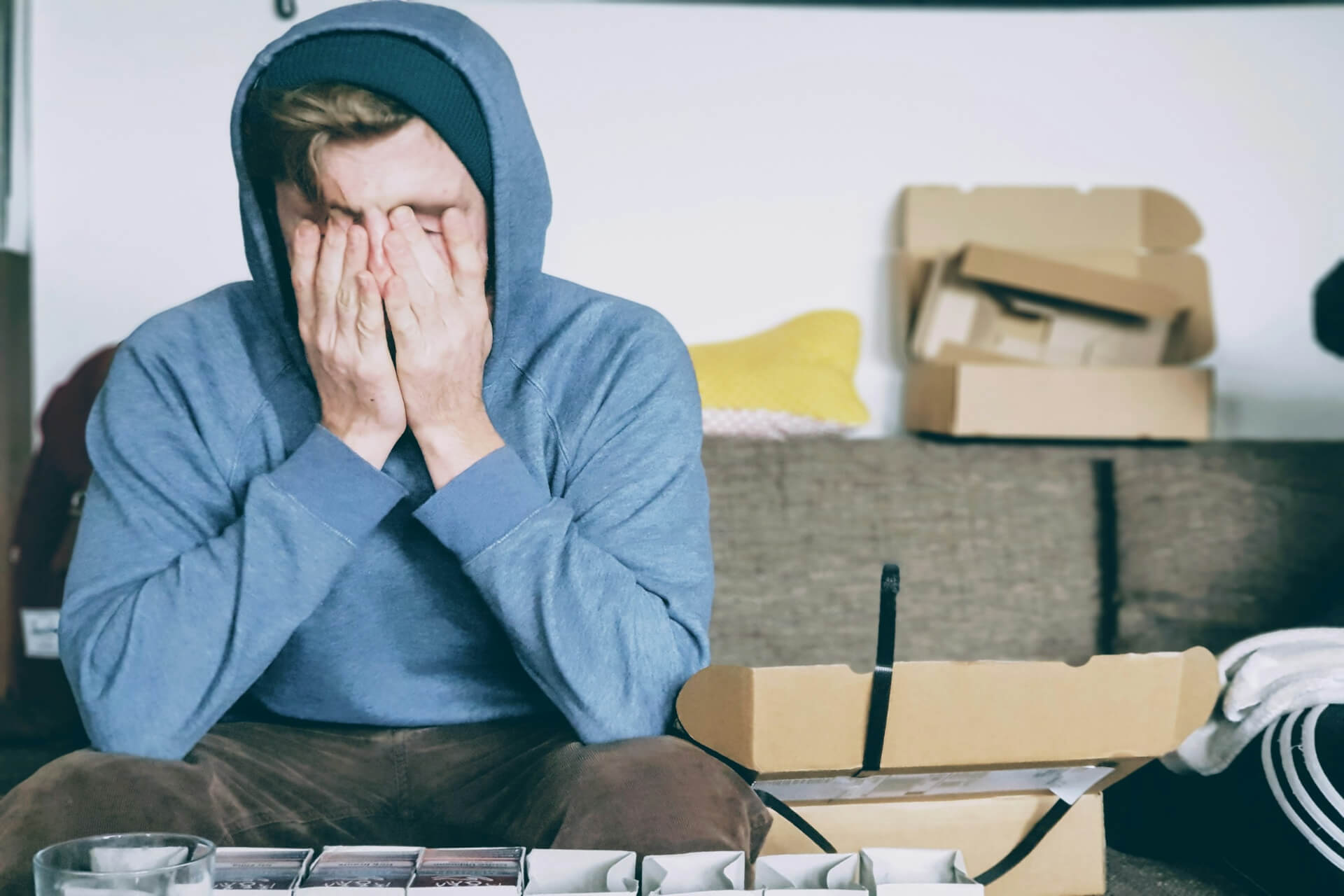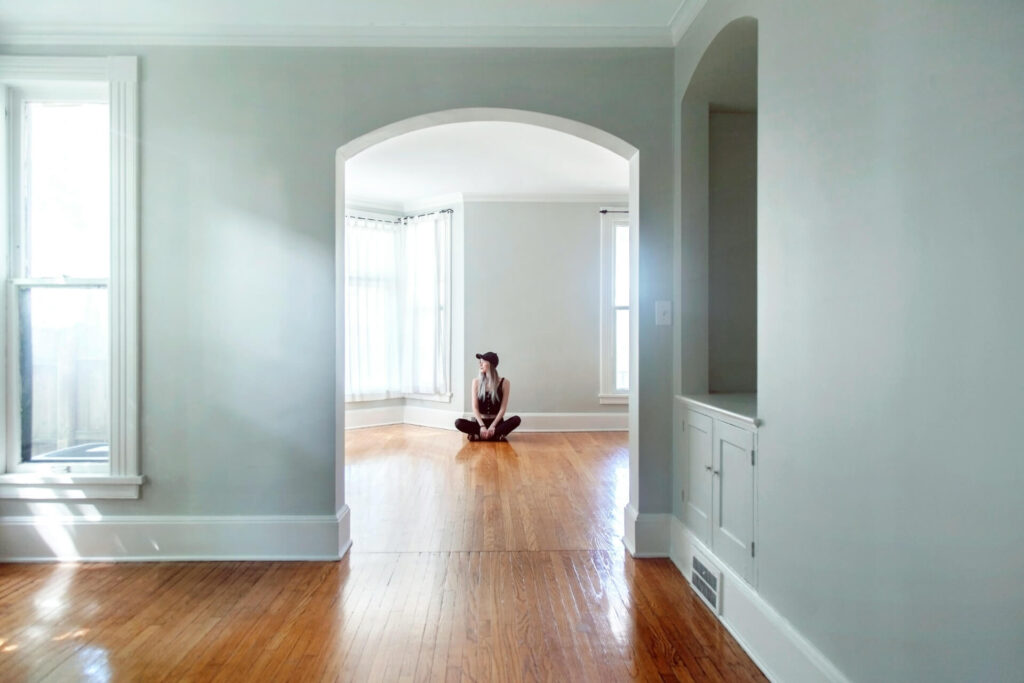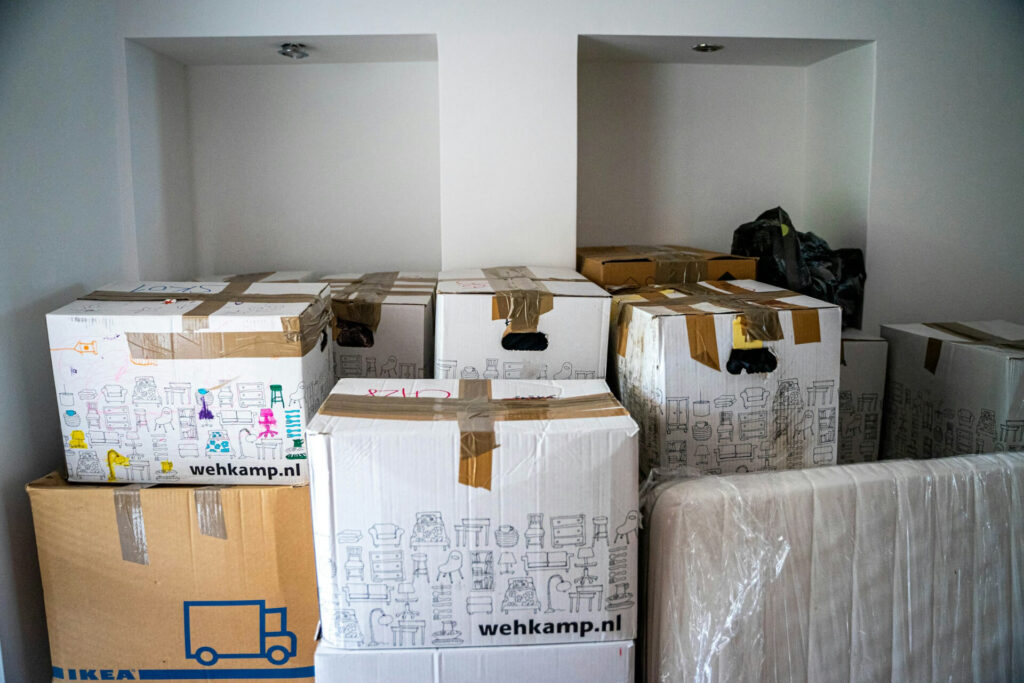
Body + Mind is reader-supported. We may earn an affiliate commission when you buy through some of the links on our site.
When I moved across the country, I expected a fresh start — new job, neighborhood and energy. What I didn’t expect was the wave of numbness that followed. I had my boxes unpacked, furniture in place, Wi-Fi installed — yet I felt hollow.
You’re not broken if you’ve recently relocated and can’t shake the sadness. Relocation depression is a real and surprisingly common experience. Whether you’ve moved to a different city, a new state or a completely foreign country, the emotional weight can sneak up on you fast and linger for a while.
And it’s not always dramatic. Sometimes it’s just a quiet ache. A sense of loss. A feeling that nothing feels familiar — not the streets, the grocery store or even the way people say “good morning.” I’ve been there. So let’s talk about why it happens, and more importantly, what you can do about it.

Moving is often pitched as a big opportunity — sometimes, it is. But the emotional reality? It can hit like a brick.
Here’s why relocation depression creeps in, even when the move was your choice:

Not everyone feels relocation depression the same way, but you might notice these common signs:
If any of this sounds familiar, it’s okay. There’s nothing wrong with you, and it won’t last forever.
There’s no set timeline, but most people feel better within three to six months. The first few weeks are often the hardest, as the adrenaline of the move fades and reality sets in. If you’ve moved abroad, the adjustment period may be longer due to cultural differences and homesickness.
Dr. Loren Martin, a senior researcher at the University of Toronto Mississauga, said that “Our brains are wired to protect us — especially from threatening situations. ” This leads to conditioning to fear injuries, changing how you respond to future threats. The unfamiliarity of a new place can be as much of an injury as a physical cut. Yet, people ignore relocation injuries, expecting them to heal without treatment.
You can do a lot to help yourself heal and adjust faster — and more gently.
Here are the things that helped me recover and shake off the brain fog. They’re small steps, but they add up to significant change.
Keeping a running mental score is tempting, but comparison keeps you stuck. Remind yourself that different doesn’t mean worse — just unfamiliar. And unfamiliar can become home over time. Avoid seeing things in your new surroundings that are “bad,” compared to where you lived before. Instead, pick the good stuff — a grocery store that sells your favorite fresh vegetables daily — and ignore the pieces that aren’t as nice — the longer commute to work.
You don’t need a perfect morning ritual or 10-step plan. Having coffee at the same spot daily or walking the same block after dinner can ground you. Routines build familiarity — and that breeds comfort. Find things you love doing, like attending yoga classes, and approach these as if you’ve never done it before so you avoid comparing new teachers to your favorite hometown guru. Community groups are great places to look for recommendations, and you can usually post anonymously while you get the lay of the land.
Returning to healthy habits can boost your confidence and morale in challenging times.
Walk to a park, go to a local bookstore or sit at a coffee shop and chat with the barista. Even if you’re not talking to people, being around them helps rewire your brain to feel safe and connected in the new space.

Don’t pressure yourself to “make friends fast.” Instead, aim for one contact like a neighbor, co-worker or person in your language class. Aim for casual. Even a friendly acquaintance can shift your emotional weather.
When I moved, I found a fantastic pet supply store near me, and even when I didn’t need anything, I would go there for a morning chat on days when I felt more glum than usual. A quick chat and a pack of catnip were all I needed to feel much more grounded and happy — and my pets settled much more easily with all the treats.
Don’t reinvent the wheel. Keep buying your favorite grocery staples, put on some old bedsheets and soothe your spirit with your favorite playlists. These small comforts create continuity and help you feel more like yourself in a strange place.
If you used to run every morning, do so now, and if you binge-watched Netflix on Fridays, don’t feel pressured to meet strangers instead.
Tell a friend from back home you’re struggling, or journal it out. Join an online forum of other expats or recent movers. Naming it helps it pass faster. And you’ll realize you’re not alone in this feeling. They may also have excellent tips to help you adjust faster.
If the sadness is deepening, or you feel hopeless, talk to a therapist. Remote sessions are widely available and can help you navigate relocation depression with more support and less judgment.

Relocation depression is a short-term emotional state that can follow a big move. It’s characterized by sadness, fatigue, anxiety and disconnection after relocating to a new place. It’s not a mental illness, but it can feel overwhelming — and it’s more common than you think.
While relocation depression focuses on emotional flatness or grief, relocation anxiety is more about heightened stress, worry or panic — especially around change and unfamiliar routines. Some people experience both together.
Most people begin to adjust within three to six months. If symptoms persist or worsen, professional support may be helpful. Culture shock, loneliness and the pace of adjustment can all affect your timeline.
If you’re feeling sad after your move, don’t rush yourself to feel better. You’ve uprooted your entire life. Of course, it’s going to shake you.
But you’re also learning how to rebuild. How do you trust yourself in unfamiliar places and grow in discomfort? And that’s something to be proud of.
One day, you’ll walk into a coffee shop or pass a street corner and feel that strange, quiet sense of “this is mine now.” The sadness will loosen its grip. And slowly, your new life will begin to feel like home.
Your email address will only be used to send you our newsletter, and at any time you may unsubscribe. For more information, see our Privacy Policy.